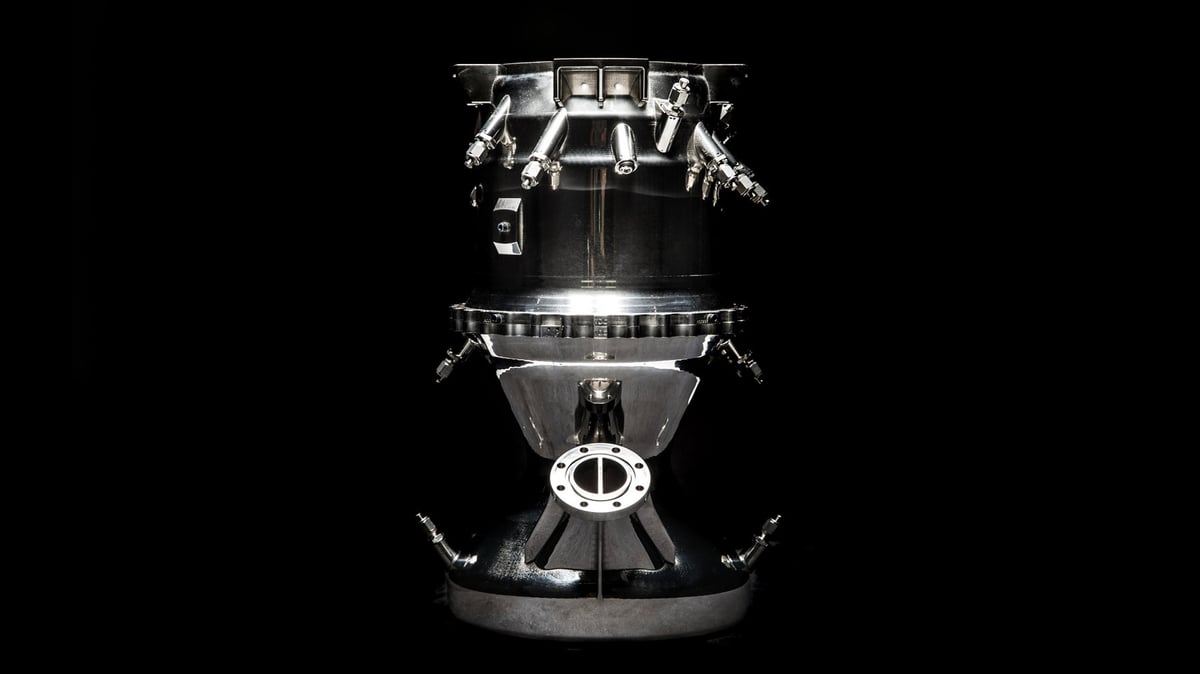Founded in 2015 by two former Blue Origin propulsion engineers, Relativity Space is a privately held company working toward establishing the rocket factories of the future. And with a system currently in development and testing that allows for the rapid iteration and production of load-lifting rockets, it looks likely they’ll achieve an approximation of that goal.
The key to the company’s plan is a proprietary 3D printing system dubbed Stargate. An intelligent system consisting of three sensor-laden robotic arms, Stargate coordinates print heads and in-situ machining to take the company’s raw, in-house alloy material and both print and finish parts in the same job.
Paired with a vastly simplified rocket design consisting of a mere 1,000 parts (to a traditional rocket’s hundreds of thousands), and it allows the company to rapidly iterate and customize rockets according to demand in months, rather than years.
As we reported back in April, Relativity Space has some serious cash to burn. Raising $35-million in a Series B funding round, the space tech company placed a focus on quickening the development of its orbital rocket and hiring new team members to get the company further off the ground.
Announced earlier this month, Tim Buzza, aerospace veteran and former executive of SpaceX and Virgin One, will be joining the company as an advisor. He is the latest in a wave of high-profile advisors and industry experts, including Chris Newton and James Harris of SpaceX and Blue Origin respectively, to join the company in a variety of capacities.

The New Space Race
Besides the fact that humans sending things into space is inherently awesome (which we mean in the literal sense), Relativity Space is doubly interesting for us given the company’s heavy usage of additive manufacturing.
Indeed, the company’s proprietary 3D printing system — called Stargate, possibly the nerdiest and most endearing name for a machine fabricating things for space — is proclaimed as the largest metal printer in the world. Which you might expect, considering it’s printing rockets. The company even prints the fuel tanks that feed the engines, plus the fuselage to house them.
Condensing many of the systems typically required in a rocket engine down to a series of fully 3D printable parts, the company exemplifies the benefits of additive in the most striking way.
And the hiring of Buzza and his contemporaries is a great step towards seeing Relativity Space succeed in this competitive industry.
Talking to SpaceNews, Tim Ellis, Co-Founder and CEO of Relativity said: “He’s really one of the rarest individuals in the whole industry, where he’s actually seen multiple programs built up successfully before“. He continues “Once someone likes that becomes available on the open talent market, you really want to jump in… We’re growing quickly from there, but trying to keep the talent bar very high”.
Check out a slick video of Relativity Space’s 3D printed Aeon rocket giving it the beans, below.
License: The text of "SpaceX and Virgin Orbit Veteran Tim Buzza Joins Relativity Space" by All3DP is licensed under a Creative Commons Attribution 4.0 International License.